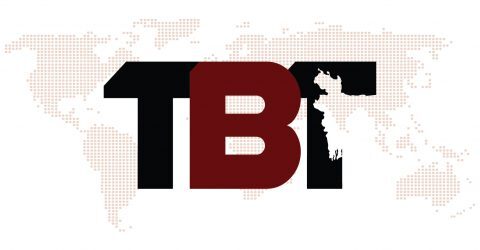Negligence of pharmacists is a major obstacle to ensuring better healthcare in Bangladesh
The Bangladesh The Bangladesh
Today

Muhammad Torequl Islam : Pharmacy is the science and practice of discovery, production, preparation, marketing, review, and monitoring of drugs, which ensures the safe, effective, and cost-effective use of drugs. Pharmacists are health professionals who specialize in the safe and effective use of medicines. They have specialized knowledge of drug preparation, drug effects in the body, metabolism, mechanisms of action, kinetics, and, above all, drug toxicity. The journey of the pharmaceutical industry in Bangladesh began in the early fifties. We started producing pharmaceuticals shortly after independence (1971). Initially, we were able to produce only 20% of the total demand, and 80% was dependent on foreign imports. At present, a total of 20,500 medicines are being manufactured in Bangladesh, which meet 98 percent of the country’s needs and are being exported to more than 160 countries in the world. That is, we currently import 2% of foreign drugs. The country is now producing drugs and raw materials worth about 25 thousand crore rupees annually, and the industry has created employment for about two lakh people. The first pharmacy course in Bangladesh was started at Dhaka University 59 years ago today (in 1964).
From the beginning, the biggest workplace for pharmacists in Bangladesh was the pharmaceutical industry. At present, the contribution of this industry in the domestic market is more than 13 thousand crore, and in the international market, it is more than 650 crore. The growth rate in this sector is above 9 percent. Currently, there are 850 government-listed small and large pharmaceutical factories and 269 private institutions producing allopathic medicines in different regions of the country. However, in addition to the pharmaceutical industry, pharmacists can work in several different areas consisting of hundreds of prestigious positions, among them Pharmacy Practice & Specialty Areas(e.g., Ambulatory Care Pharmacist, Aseptic Infusion & IV Manufacturing Pharmacist, Bariatrics Pharmacist, Biologics &Biosimilars Pharmacist, Chief Clinical / Medical Officer, Chief Pharmaceutical Officer, Clinical Director, Clinical Pharmacist, Clinical Programs Leader, Community Pharmacist, Compounding Pharmacist, Cosmeceuticals / Cosmetics Pharmacist, Critical Care Pharmacist, Director of Clinical Solutions, Emergency Care Pharmacist, Functional Medicine Pharmacist, General Practice Pharmacist, Geriatrics Pharmacist, Home Care Pharmacist, Home Health Equipment, Hormone Medicine Pharmacist, Hospital Pharmacist, Immunization Pharmacist, Infectious Disease Pharmacy / Antimicrobial Steward, Infectious Disease Testing Pharmacist Management Roles, Internal Medicine / General Medicine Pharmacist, Long-Term Care Operations Pharmacist, Managed Care Pharmacist, Mental Health & Addictions Pharmacist, Natural Supplements & Herbal Medicine Pharmacist, Nutraceutical Pharmacist, Oncology Pharmacist, Outpatient Pharmacist, Pain Management / Opioid Steward, Pediatric Pharmacist, Pharmacy Manager / Pharmacy Operations Manager, Regulatory Health Project Leader, Sexual Health Pharmacist, Surgical Care Pharmacist, Systemic Therapy Pharmacist, Travel Medicine Pharmacist, Veterinary Pharmacist), Technology & Health Information Sector (e.g., Automation Pharmacist, Clinical Applications Pharmacist, Clinical Data Analyst, Clinical Software Development Specialist, Clinical Software Integration Specialist, Clinical Solutions Pharmacist, Digital Health Specialist, Electronic Health Record Training Pharmacist, Health Informatics Specialist, Information Technology Pharmacist, Pharmacy Informatics Specialist, Social Media Engagement / Communication Specialist, Telehealth Service Provider, Virtual Clinical Pharmacist), Government & Regulatory Sector (e.g., Clinical Inspection Pharmacist, Consumer Safety Officer, Correctional Facility Pharmacist, Drug Advertising Reviewer, Drug Pricing Reviewer, Drug Reimbursement Expert, Drug Safety Data Reviewer, Medicines Advisor, Military Pharmacist, Nuclear Pharmacist, Patient Advocacy Board Member, Pharmaceutical Services Commissioner / Negotiator or Drug Reimbursement Reviewer, Pharmacoeconomics Specialist, Pharmacy Advocacy Member, Pharmacy Education Accreditation Reviewer, Poison Control Pharmacist, Public Health Service Pharmacist, Regulatory Board Member, Specialist Pharmaceutical Advisor to Local, Regional, or National Government), Academic Sector (e.g., Clinical Rotations Preceptor, Education & Training Pharmacist, Lecturer / Professor, Licensing Exam Preceptor / Moderator, Pharmaceutics Professor, Pharmacodynamics Researcher / Professor, Pharmacokinetics Researcher / Professor, Pharmacology Researcher / Professor, Pharmacy Practice Researcher / Professor, Pharmacy Student Mentor / Preceptor, Research & Development Pharmacist, Residency / Fellowship Coordinator, Teacher Practitioner, Teaching Assistant / Lab Assistant, Teaching Fellow, Therapeutics Professor) and Non-Traditional Pharmacy Career Areas (e.g., Academic Detailer, Aerospace / Space Health Pharmacist, Business Adviser / Investor, Career Development Coach, Central Fill Pharmacist, Continuing Education Provider, Digital Therapeutics Specialist, Drug Information Pharmacist, Estate & Tax Planning Consultant, Geospatial Pharmacist, Health / Life Coach, Medical Writer / Editor (In Medical Communications Agencies), Medication Safety Management Specialist, Pharmacogenomics Specialist, Pharmacy Financial Consultant, Pharmacy Programs Coordinator, Pharmacy Research Coordinator, Pharmacy Strategy Consultant, Start-Up Developer / Innovator, Supply Chain Pharmacist / Warehouse Manager / Distribution Manager / Wholesaling Manager)are mentionable. The positions in which pharmacists work in the pharmaceutical industry are generally in developed countries. Biomedical Researcher, Clinical Research Associate, Digital Diagnostics Researcher, Digital Therapeutics Researcher, Drug Safety Associate, Forensic Scientist, Industrial Manufacturing, Marketing & Medical Strategy, Medical / Drug Information Associate, Medical Science Liaison, Medicinal Chemist, Pharmaceutical Modeler (e.g., Pharmacokinetics, Pharmacodynamics, Physiologically-Based Pharmacokinetics, & Quantitative System Pharmacology Modelling), Pharmaceutical Sales Representative, Pharmaceutical Scientist, Pharmaceutical Study / Research Lead, Pharmacist Clinical Pathologist, Pharmacologist, Pharmacovigilance Specialist, Product Development, Quality Assurance, Quality Control Chemist, Regulatory Affairs Pharmacist, Regulatory Affairs Specialist, Research Scientist, and Toxicology Pharmacist. The scope of work of pharmacists in the pharmaceutical industry in Bangladesh is also observed to be very low. In spite of this, pharmacy education in the pharmaceutical industry in Bangladesh can prove its worth, but there are various aspects of pharmacy in the government and private sectors. As a result, our pharmacy is failing day by day to uphold its own reflection. The health sector is a very important sector in any country. Each country’s health department works in an effort to build a reliable health care system for its own population. So ensuring a functioning healthcare system should be a consistent goal for any government. Achieving this goal requires different health professionals to work collaboratively with each other. Pharmacists are an important part of coordinating drug therapy management. Pharmacists are currently playing an important role in the pharmaceutical industry, hospital and clinical pharmacy dispensing systems, and prescription service in developed countries. According to the World Health Organization (WHO), any country should have at least one registered doctor per 1,000 people. However, Bangladesh has one doctor for every 1887 people and only one registered doctor for every 6570 people, which is not adequate to provide health care by ensuring minimum standards. Hopefully, we have enough pharmacists. Currently, pharmacy is taught at a total of 41 universities in Bangladesh, both public and private. An average of 2330 graduate pharmacists come out every year, and out of them, we get quite a large number of registered pharmacists. Although the current age of pharmacy education in Bangladesh has passed almost 60 years, we have not yet secured other important areas of work for our pharmacists except in the pharmaceutical industry and limited positions, which is largely responsible for the fragility of our health system. Current evidence suggests that pharmacist prescribers are an essential part of improved medication management. In fragile health management countries like Bangladesh, where the number of physicians is much less than the WHO’s recommendation according to population size, skilled pharmacists can play a great role. Currently, there are registered prescriber pharmacists in America, Australia, Canada, England, South Africa, and Scotland. In these countries, skilled pharmacists are also working as prescribers along with doctors. Pharmacists are providing prescription services in a dependent or delegated, independent, supplementary, structured, and autonomous manner, and they have been able to prove themselves successfully. As a result, their health management is getting better day by day. Pharmacists in these countries are showing their skills in all tasks, including prescription checking, independent prescription service, supplementary prescription service, prescription in critical care, prescription for online care and ambulatory services, and prescription validation checking. On the other hand, thousands of crores are being spent every year due to poor health management in Bangladesh due to foreign treatment. Hospitals and clinics still do not have space for skilled pharmacists; there is no such thing as community pharmacy. The modern pharmacy established a few days ago is very small and fragile in terms of number and management. On the other hand, very important subjects like hospital, clinical, and community pharmacy have received less importance in our university education system. As a result, many graduate pharmacists are now looking for non-pharmacy jobs on whim, which is a waste of higher education experience and talent.
Overall, pharmacists’ negligence amounts to healthcare negligence. In my opinion, it is very important to recruit a sufficient number of skilled pharmacists in our health sector to meet the national health challenges of the 21st century. For this, pharmacists should arrange proper education and training. Before that, important issues like national policy and regulations, accreditation facilities from the pharmacy council, liability and logistics, reimbursement and documentation, and the cooperation and attitudes of patients and other healthcare providers should be properly designed and monitored.
The writer is an Associate Professor, Department of Pharmacy, Bangabandhu Sheikh Mujibur Rahman Science and Technology University, Gopalganj 8100, Bangladesh. He can be reached Email: [email protected]




